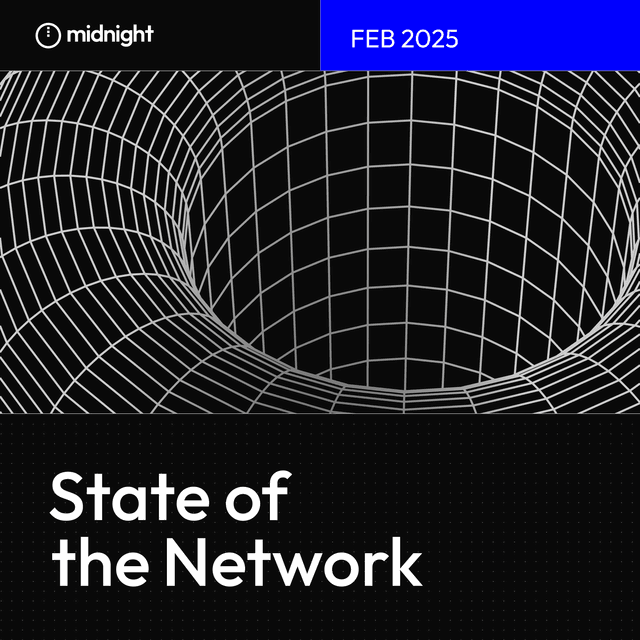Welcome to the first State of the Network blog, a monthly roundup of key developments across the Midnight universe covering technical updates, insights, and implementations.
This edition highlights testnet performance improvements, insights from the Sea Battle Hackathon, a recap of ecosystem partnerships to date, resources for block producers, and key updates to the Compact language and compiler.
Network growth
The past few months have seen significant growth for Midnight, with over 1 million blocks produced on testnet.
Various issues were identified and resolved on testnet in January. A primary focus has been improving network performance and reliability through updates, community contributions, and stress testing. Increased developer activity and hackathon participation have helped identify key areas for improvement.
The growing number of block producers has also helped identify improvements, such as updated configurations to prevent rapid and large memory spikes in the node's cache during operation.
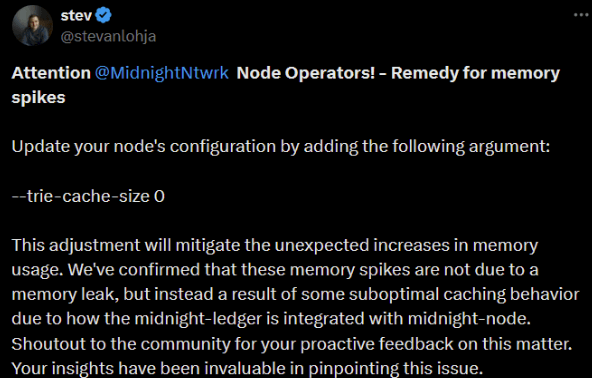
Growing developer engagement and network usage are critical ahead of mainnet launch, as they enable issue resolution and performance optimization: the core purpose of the testnet.
More updates are on the way. Stay up to date with the latest information, and if you have technical questions or need help troubleshooting, the best place to do that is the Midnight Discord.
Infrastructure
Becoming a Midnight block producer
The community has shown interest and enthusiasm for recent resources demonstrating how to become a Midnight block producer.
If you were thinking of running a node but didn’t know where to start, it’s a great time to try it out on testnet. Check out the latest blog that summarizes the process and links to the key resources that are available.
A detailed walkthrough video, documentation resources, and a supportive Discord community are available to guide you through the setup process.
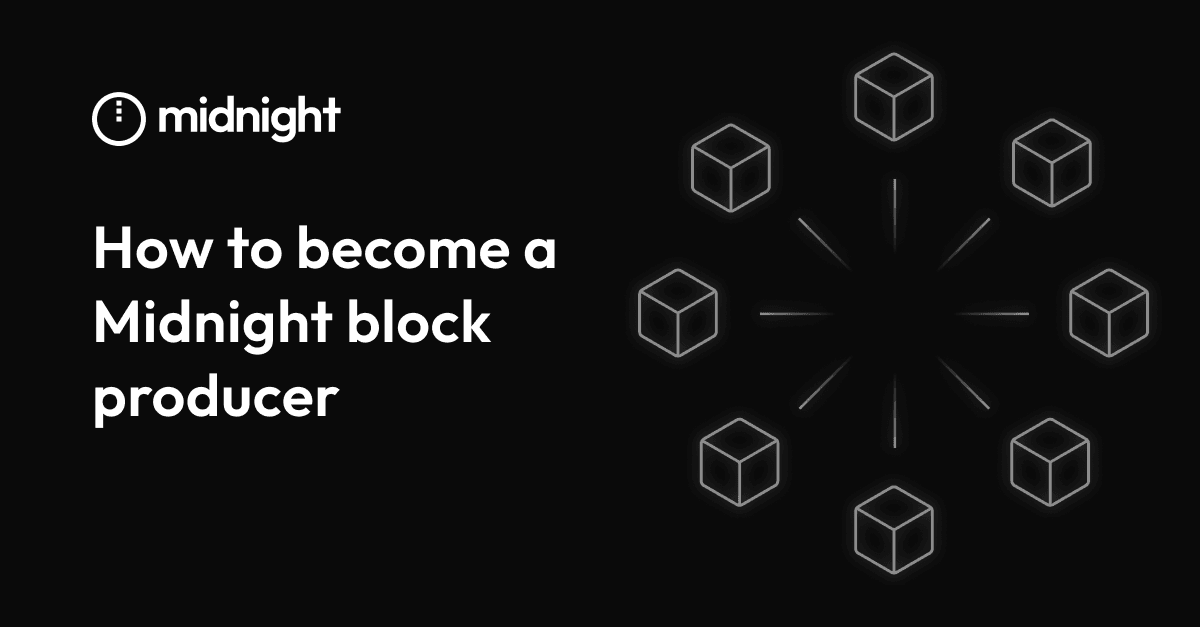
User & developer insights
Developer insights from the Sea Battle Challenge
The recent Sea Battle Challenge demonstrated how Midnight smart contracts manage information through public and private states through the lens of the popular turn-based strategy game. Using these mechanics in a familiar game format highlights their practical application on the Midnight network.
Here’s how the Sea Battle Challenge brought these concepts to life:
- Game setup (public state): When players register, the game’s existence and participants are publicly visible, but ship placements remain private.
- Placing ships (private state): Players position their ships privately, verified by zero-knowledge proofs (ZKPs) to ensure rule compliance without revealing exact locations.
- Taking a turn (public & private interactions): Players fire at coordinates (public action), but results (hit or miss) remain private initially. ZKPs validate the response without giving away private information.
- Revealing hits and sunk ships (state change): When a ship is destroyed, its placement transitions to public state, ensuring fairness in gameplay without exposing unnecessary information.
- Declaring a winner (public state finalization) Once all ships are sunk, the winner is publicly declared. If token stakes are involved, rewards are transferred privately.
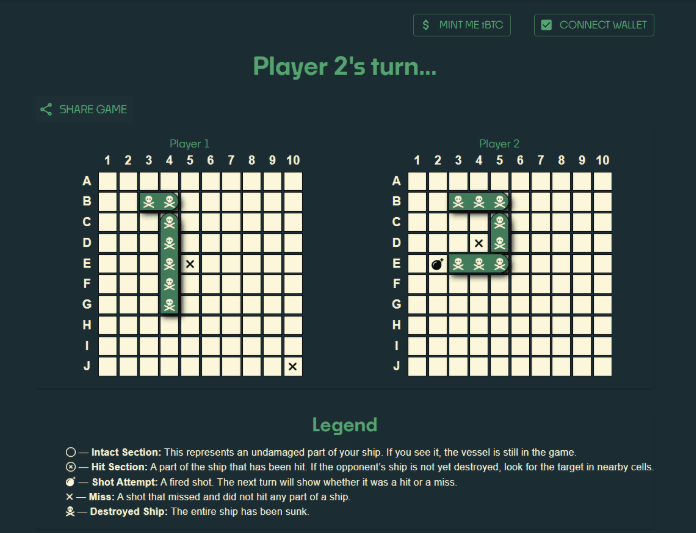
The hackathon presentations are available on Midnight’s YouTube channel and are a great resource for understanding how to build DApps on Midnight, and for high-quality examples of hackathon presentations in anticipation of Midnight’s ZK Identity Challenge, the current virtual hackathon.
Ecosystem
As mainnet launch approaches, Midnight ecosystem partnerships are laying the foundation for a robust, scalable, developer-friendly, and secure network. So far, Midnight has announced ten ecosystem partnerships across four major categories.
Infrastructure Support
Cherry Servers is a provider of high-performance, bare-metal servers tailored for blockchain workloads. Cherry Servers is committed to supporting Midnight network validators by offering scalable and secure infrastructure optimized for block production. This collaboration also simplifies the onboarding process for Cardano Stake Pool Operators (SPOs) to become Midnight block producers by reducing technical complexity, physical infrastructure requirements and security risks.
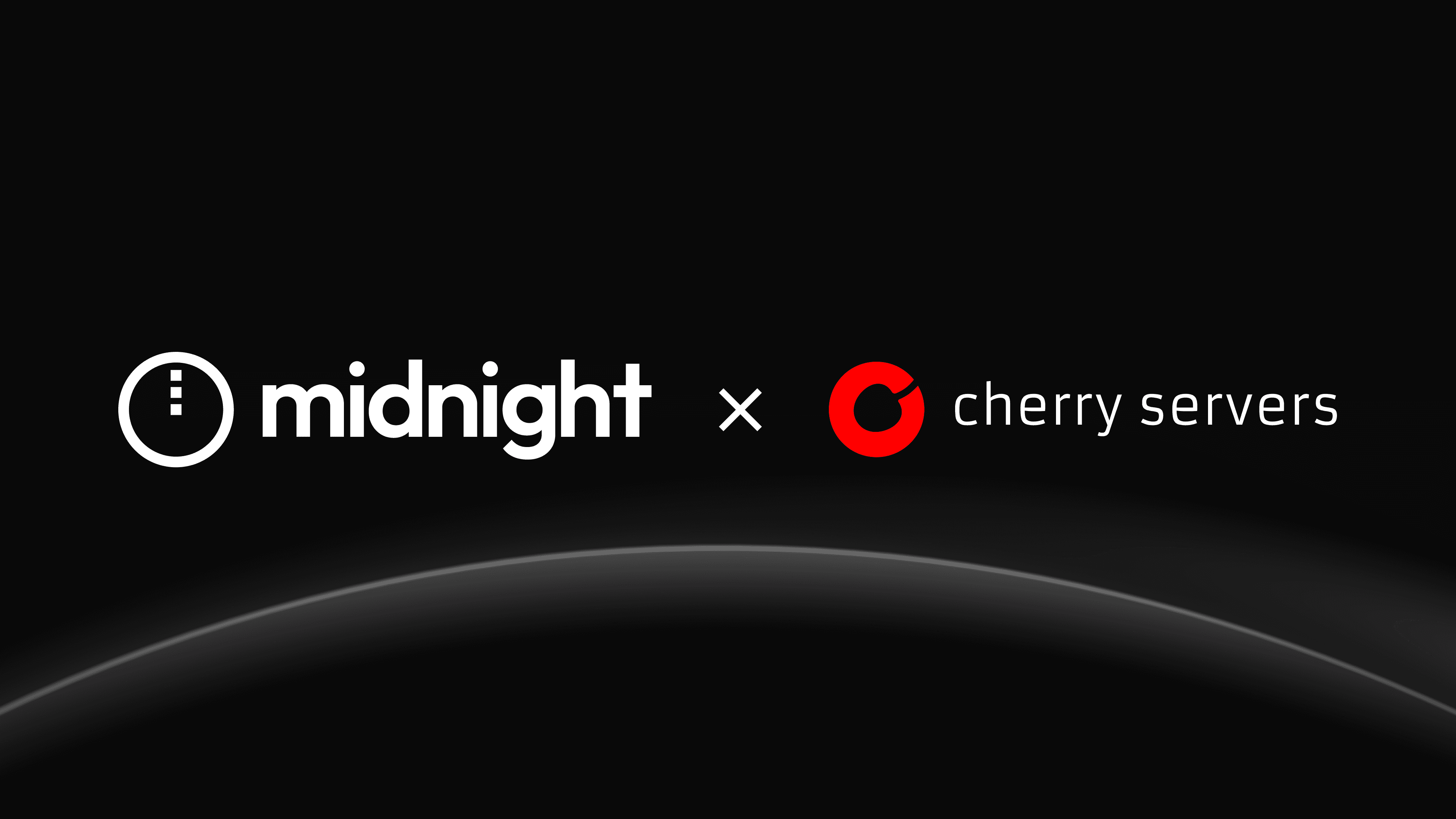
Learn how the partnership empowers node operators and block production.
DeFi
Ecosystem partners SundaeSwap, NMKR, and Fluid Tokens will enhance privacy, regulatory compliance, and user experience within the DeFi ecosystem. These partnerships contribute to the development of a secure and compliant decentralized finance ecosystem, setting the stage for the next wave of innovation and accessibility with Midnight.
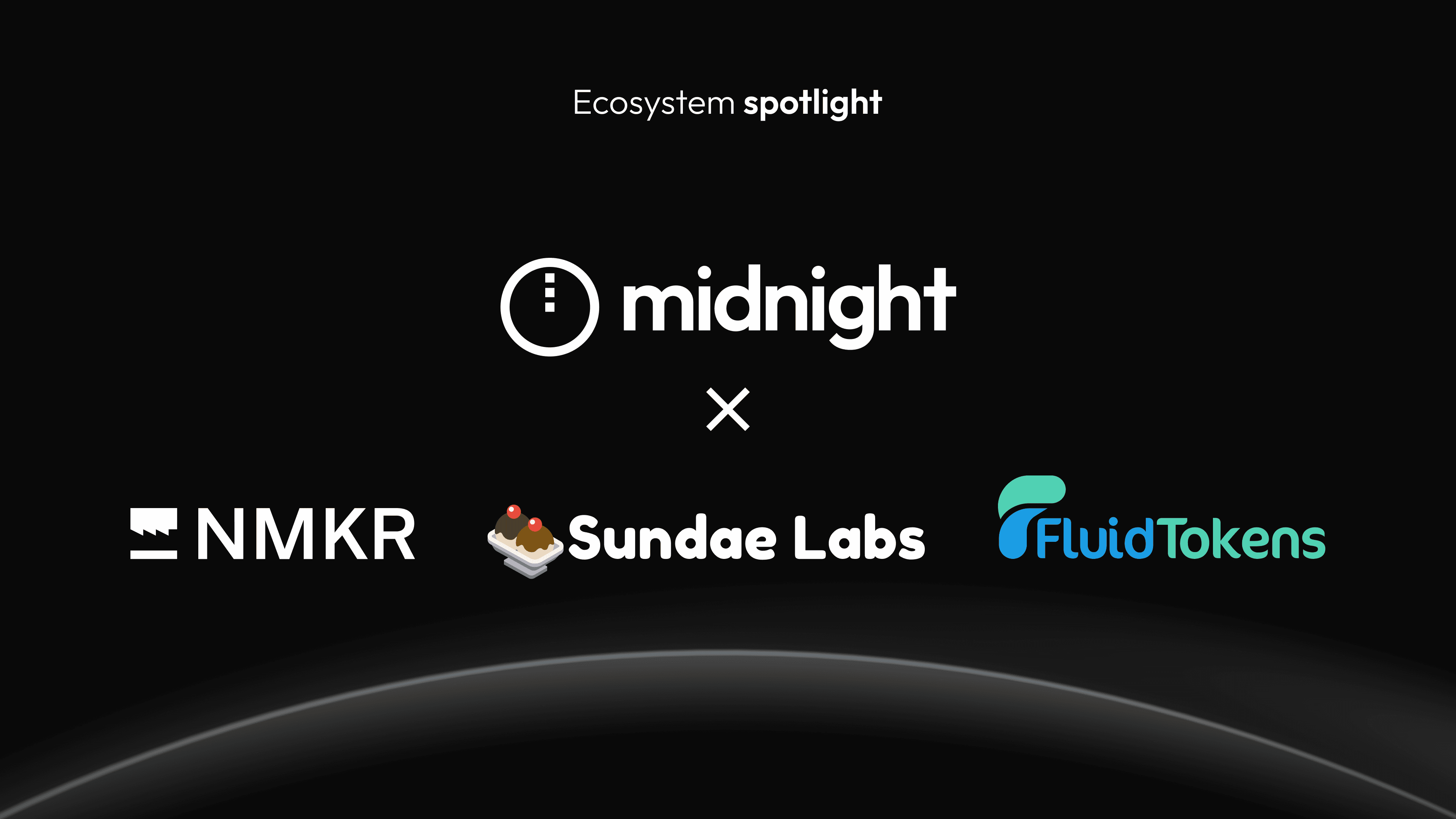
Learn how each collaboration is expanding Midnight’s DeFi ecosystem.
DApp Development Support
Partnerships with CheckIT Labs, FIWORK, and Vacuumlabs expand the network’s capabilities and drive ongoing development. These partners will collaborate closely with the community to identify new use cases, improve network utility, and ensure a continuous feedback loop between Midnight’s core team and third-party developers.
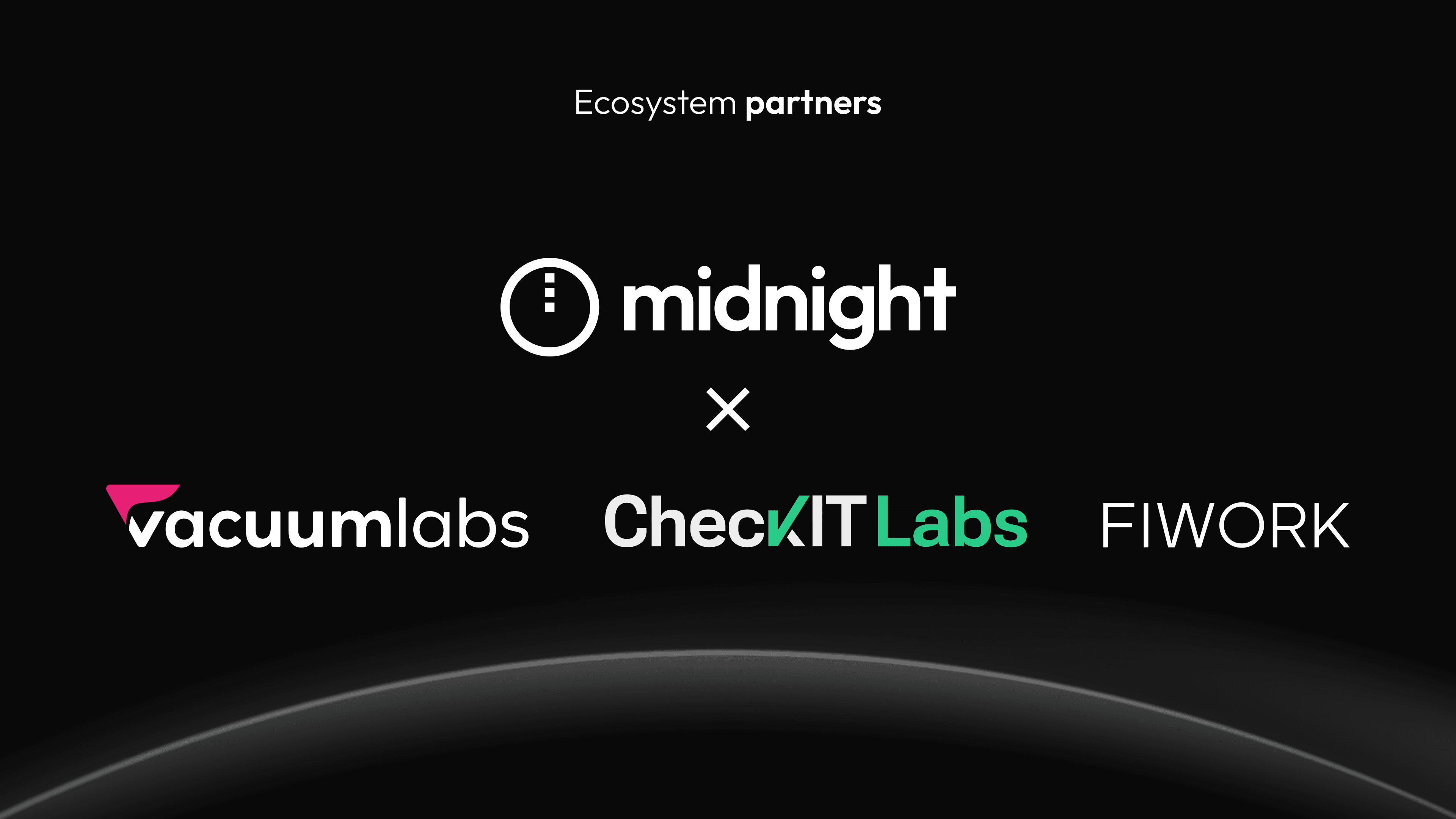
Find out how these supercharge capabilities for developers and DApps.
ZK Tooling
Collaborations with blockchain tooling and infrastructure providers Maestro, Paima Studios, and Sindri will empower developers and facilitate the integration of zero-knowledge technology into decentralized applications. These ecosystem partnerships enable developers to build privacy-enhanced applications more efficiently.
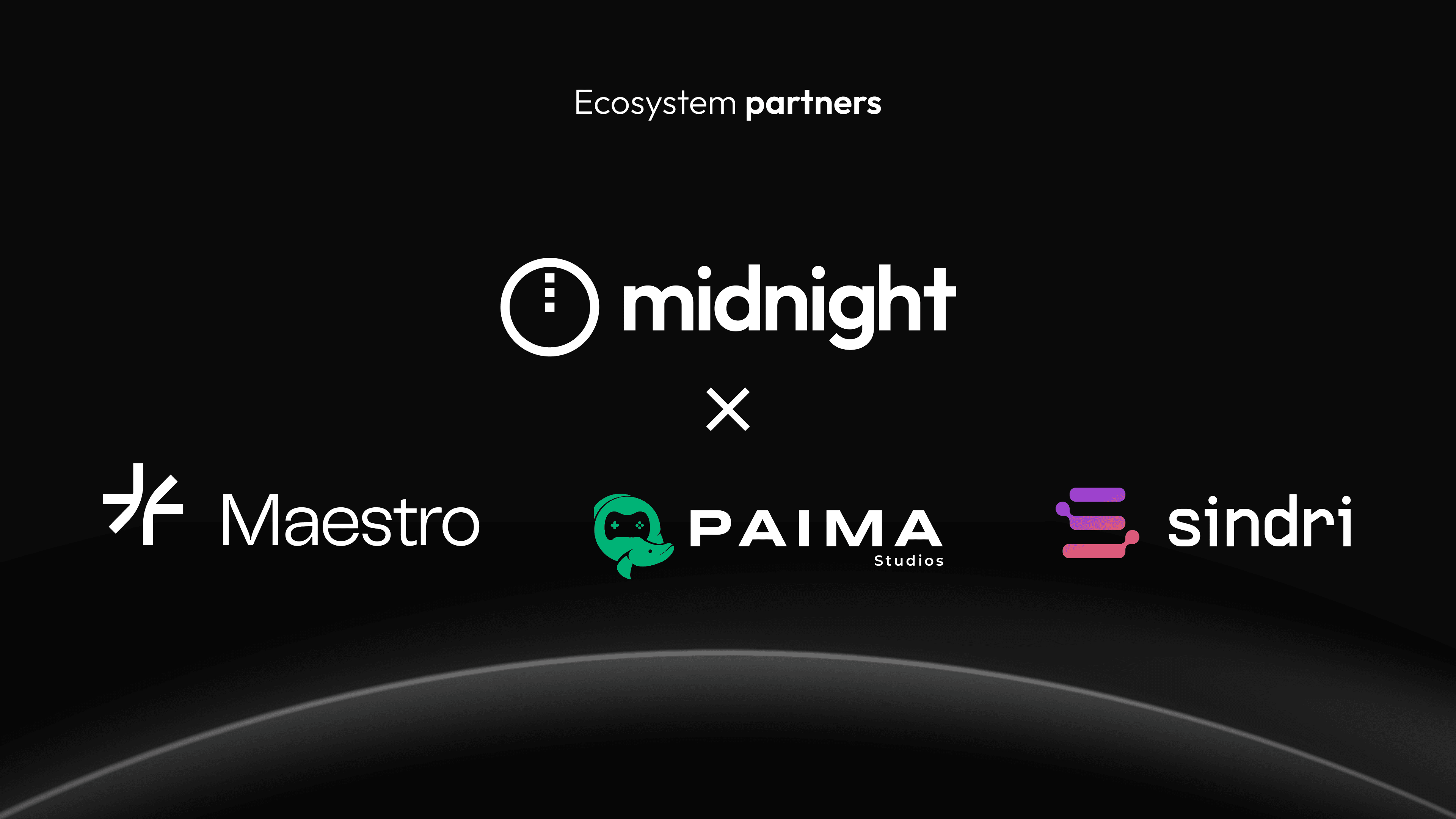
Discover how Midnight accelerates zero-knowledge DApp development.
Releases & documentation
Compact updates and release notes
The latest release of Compact compiler 0.21.0, which updates the Compact language to 0.14.0, bringing key enhancements to improve flexibility, security, and overall usability for development on Midnight.
Compact language 0.14 highlights
The release of Compact 0.14.0 has introduced significant improvements broadening the language's capabilities and improving usability. Two key updates include:
- Tuples and destructuring: Compact now supports fixed-length tuples with elements of differing static types, expanding on its previous use of fixed-length arrays (vectors). Destructuring, or pattern-matching, has been introduced for tuples, vectors, and structures, offering greater flexibility.
- Explicit disclosure: To prevent unintended private data leaks, the compiler now tracks private data accessed by witness functions. Programmers must explicitly disclose private values to write them on-chain, reducing risks associated with data exposure. This is an essential improvement for strengthening data protection with Midnight.
These are just two updates of many improvements which can be explored in the latest release notes.
Join the community
This blog will provide regular updates focused on network improvements, technical insights, developer projects, and infrastructure updates every month.
To connect directly with the Midnight community, join the Midnight Discord server. It’s the best place to find real-time information, connect with developers, and troubleshoot problems.

